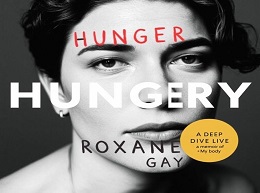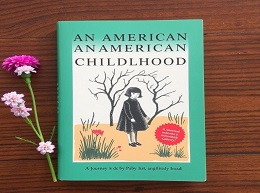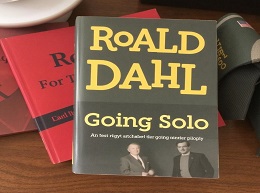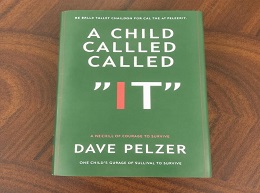Hunger: A Memoir of (My) Body

A Deep Dive into "Hunger: A Memoir of (My) Body" by Roxane Gay
Roxane Gay's "Hunger: A Memoir of (My) Body," published in 2017, is a raw and powerful exploration of trauma, body image, and the journey to self-acceptance. In this deeply personal memoir, Gay confronts her past, her body, and the societal expectations that have shaped her experiences. "Hunger" is not just a story about weight; it’s a story about survival, resilience, and the complex relationship between trauma and the physical self. This review delves into the key themes, poignant moments, and lasting impact of Gay's memoir, offering a comprehensive look at why "Hunger" resonates so profoundly with its readers.
Part One: The Trauma and Its Aftermath
Gay's narrative begins with a harrowing account of the trauma that profoundly shaped her life. At twelve years old, she was gang-raped by a group of boys she thought were her friends. This brutal violation was a turning point, leading her to use food as a means of protection and comfort. She explains how she began to eat compulsively, creating a physical barrier between herself and the world, one that she believed would keep her safe from further harm.
Gay's detailed recounting of her trauma is both heartbreaking and courageous. She writes with an honesty that is both disarming and deeply moving, drawing readers into her pain and the coping mechanisms she developed. This section is crucial for understanding the profound impact of trauma on her body and psyche, setting the stage for the exploration of her relationship with food and her body throughout the memoir.
Part Two: The Struggle with Body Image
Throughout "Hunger," Gay candidly discusses her struggles with body image and the societal pressures that exacerbate these struggles. She speaks to the constant scrutiny and judgment faced by those who do not conform to conventional standards of beauty and thinness. Gay's writing is a powerful critique of how society treats people, particularly women, who are overweight.
For instance, Gay shares numerous experiences of being shamed in public, from strangers making unsolicited comments about her body to the limited availability of clothing for larger bodies. These anecdotes highlight the pervasive nature of fatphobia and the daily microaggressions that overweight individuals endure. Her ability to articulate these experiences with clarity and emotional depth allows readers to empathize with her journey.
Part Three: The Intersection of Identity and Body
Gay's memoir also delves into the intersections of race, gender, and body size. As a black woman, she navigates a complex landscape of societal expectations and prejudices. She reflects on how these intersecting identities shape her experiences and perceptions, adding layers of complexity to her relationship with her body.
One powerful example is her discussion of how black women are often hypersexualized and dehumanized in popular culture. Gay explores how these stereotypes have affected her self-image and interactions with others. By weaving in her experiences as a black woman, she broadens the conversation around body image to include the nuances of race and gender, providing a more holistic understanding of the challenges she faces.
Part Four: The Journey to Self-Acceptance
A significant theme in "Hunger" is Gay's ongoing journey toward self-acceptance. She acknowledges that this journey is fraught with setbacks and challenges, but also moments of progress and self-realization. Gay does not offer a neat resolution or a "happy ending"; instead, she presents a realistic portrayal of the ongoing struggle to accept and love oneself.
In one poignant passage, Gay describes a moment of self-acceptance: "I began to understand that my body was not the problem. The world was the problem." This realization marks a significant shift in her perspective, highlighting the importance of societal change alongside personal growth. Gay's candid reflections on her journey offer hope and inspiration to readers who may be grappling with similar issues.
1. The Impact of Trauma
Gay's exploration of how trauma shapes one's relationship with their body is a central theme in "Hunger." Her memoir underscores the importance of understanding and addressing the long-term effects of trauma on mental and physical health. Gay's narrative encourages readers to empathize with those who use food or other coping mechanisms to deal with their pain.
2. The Role of Society
The memoir is a scathing critique of society's treatment of overweight individuals. Gay's experiences highlight the need for greater empathy and inclusivity, challenging readers to reconsider their biases and the ways in which they perpetuate harmful standards of beauty.
3. The Complexity of Self-Acceptance
"Hunger" illustrates that self-acceptance is a complex and ongoing process. Gay's honesty about her struggles and moments of self-compassion provide a realistic portrayal of this journey. Her narrative encourages readers to embrace their imperfections and recognize their intrinsic worth.
Impact and Reception
"Hunger: A Memoir of (My) Body" has received widespread acclaim for its honesty, depth, and emotional resonance. Critics and readers alike have praised Gay's ability to tackle difficult subjects with sensitivity and insight. The memoir has sparked important conversations about body image, trauma, and the need for greater societal empathy and understanding.
The impact of "Hunger" extends beyond the literary world. It has become a touchstone for discussions on body positivity, mental health, and the intersections of identity. Gay's willingness to share her story has empowered others to speak openly about their own experiences, fostering a greater sense of community and support.
Roxane Gay's "Hunger: A Memoir of (My) Body" is a deeply moving and thought-provoking exploration of trauma, body image, and self-acceptance. Gay's unflinching honesty and powerful storytelling make this memoir a compelling read, offering profound insights into the human experience. By sharing her journey, Gay challenges societal norms and encourages readers to cultivate empathy, understanding, and self-compassion.
Whether you are familiar with Gay's work or new to her writing, "Hunger" is a must-read that will leave a lasting impact. It is a testament to the power of personal narrative and the importance of addressing difficult but necessary conversations about body image, trauma, and the pursuit of self-acceptance.













